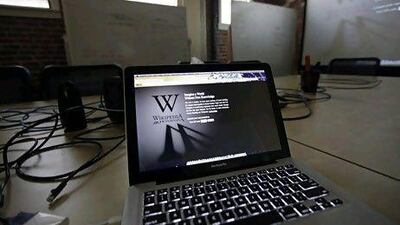The world's online community has this month thwarted attempts to introduce tough new anti-piracy legislation in the US.
But the powerful and wealthy US entertainment industry lobby has only just begun to fight.
New and potentially even more far-reaching global anti-piracy regulation is being negotiated by the US and Europe, together with countries including Japan and the UAE. The US entertainment industry is also intent on hounding down and extraditing alleged internet pirates even when they are living and operating outside the US.
At the start of this year, the powerful and well-funded US music and movie industry lobbies were confident that Congress was about to approve the proposed Stop Online Piracy Act (Sopa) and the related Protect Intellectual Property Act (Pipa). The entertainment industry had lobbied in Washington for legislation imposing stiffer penalties for anyone breaching US internet copyright law.
"A collection of entertainment media interest groups representing TV, music, and movies, such as Disney, Sony, Comcast, and CBS, has outspent the online computer services industry, such as Google, eBay, and Yahoo, by greater than a four-to-one ratio in contributions to the candidate campaigns of current House judiciary committee members from January 1, 2009 through June 30, 2011," says the non-profit research organisation MapLight.
But in the middle of this month, websites such as Wikipedia effectively went on strike in protest against Sopa and Pipa. Many in the IT industry argued that the legislation would go further than merely protecting copyright and would give the authorities draconian powers over most of the websites now operating on the internet.
The anti-Sopa campaign is being hailed as the biggest internet protest in history. Phone lines and emails at the US Congress were disrupted because of the sheer volume of calls and messages. According to the non-profit news service Intellectual Property Watch, the protest generated about 10 million petition signatures, about three million emails and about 100,000 phone calls. The strength of the mass online protest frightened the US Congress into putting the proposed bill aside.
Nevertheless, US movie, music and TV lobbies are continuing their battle against the pirates. US Customs officials are in the process of extraditing the British student Richard O'Dwyer for allegedly profiting from a website it is claimed he ran called TVShack, which offered links to other websites offering pirated movie and TV content. Despite his lawyers' defence that providing links to unpoliced websites is something many online search engines, including Google, do on a routine basis, a UK court has ruled that a treaty signed between the UK and the US in 2003 means Mr O'Dwyer can be extradited to face trial in New York state.
Days after the UK court's decision, Kim Dotcom, the German founder of the lucrative offshore website Megaupload, was arrested in New Zealand, where he also faces possible extradition for trial in the US. Mr Dotcom, also known as Kim Schmitz and Kim Tim Jim Vestor, is being indicted along with seven other individuals alleged to be guilty of piracy.
"The individuals each face a maximum penalty of 20 years in prison on the charge of conspiracy to commit racketeering, five years in prison on the charge of conspiracy to commit copyright infringement, 20 years in prison on the charge of conspiracy to commit money laundering and five years in prison on each of the substantive charges of criminal copyright infringement," says the US justice department.
But there is a growing view that the US movie and music lobby may be taking the wrong approach in trying to introduce even harsher legislation in the US, where video piracy can carry a stiffer prison sentence than manslaughter.
"Media piracy has been called 'a global scourge,' 'an international plague,' and 'nirvana for criminals,' but it is probably better described as a global pricing problem. High prices for media goods, low incomes, and cheap digital technologies are the main ingredients of global media piracy. If piracy is ubiquitous in most parts of the world, it is because these conditions are ubiquitous," says a report from the Social Science Research Council in the US.

